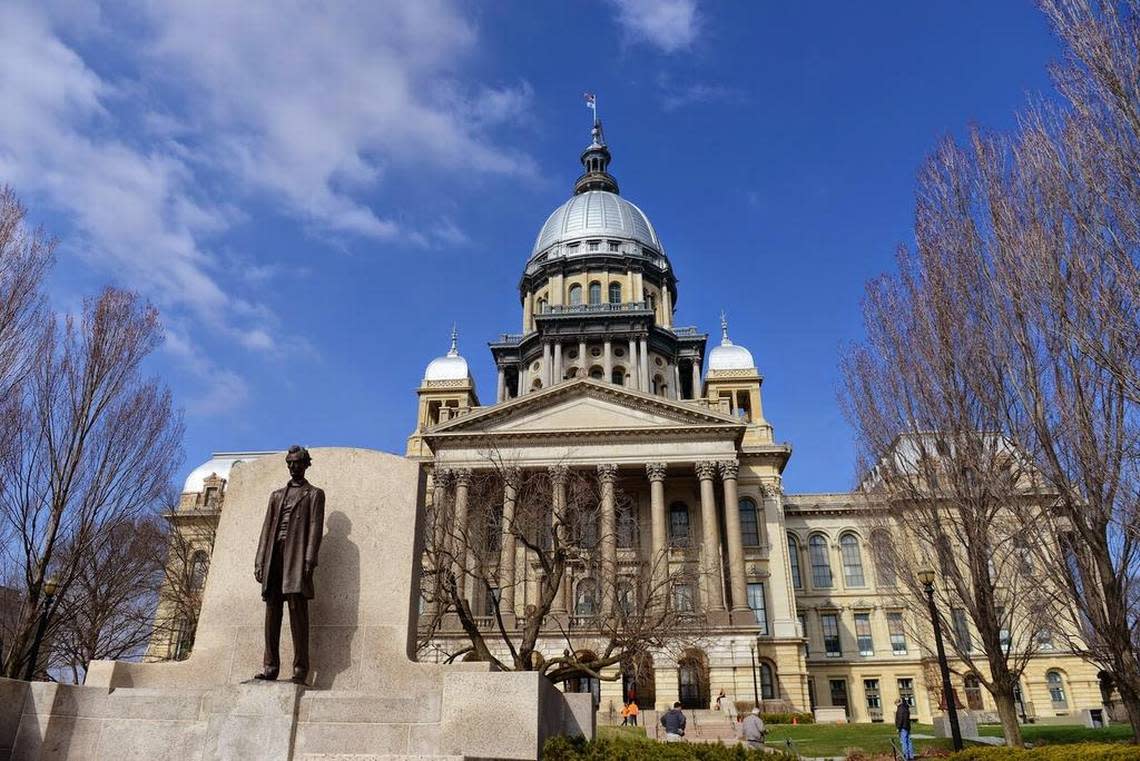Most Illinois workers will accrue paid leave starting Jan. 1. Here’s who is covered

A new Illinois law will give people working in the state a right to paid vacation time beginning Jan. 1.
The Paid Leave for All Workers Act says paid leave accrues at one hour per 40 hours worked and applies to most employees.
The act excludes independent contractors, employees at public school districts organized under the School Code and people covered by a collective bargaining agreement in the construction or parcel delivery industry, according to the Illinois Department of Labor.
The legislation explicitly includes domestic workers and employees at private schools that are not organized under the School Code.
The act will take effect Monday, and employees may start using their accrued paid time off Sunday, March 31.
Paid Leave for All Workers is less than two weeks away.
Learn more about the law and get your questions answered.
Sign up for a webinar.https://t.co/mkRnAnfusI#PLAW #PaidLeave pic.twitter.com/srLj9UZ726— IL Dept. of Labor (@ILDeptofLabor) December 20, 2023
Residents of Chicago and Cook County are already covered by local ordinances requiring paid leave, but the state legislation extends that benefit to many other Illinois workers.
Non-tipped workers will receive their full wage while on vacation, and tipped employees will be paid the tipped minimum wage – $8.40 per hour as of Jan. 1, 2024.
The non-tipped minimum wage will increase to $14 an hour in Illinois Jan. 1. Children who work less than 650 hours per calendar year will have a minimum wage of $12 an hour starting the same day, up from $10.50 previously.
The Paid Leave for All Workers legislation applies to people working full time, part time and seasonally, though the number of vacation hours accrued will vary based on how much a person works.
More on ‘Paid Leave for All’
Up to 40 hours of paid time off may be earned under the Paid Leave for All Workers Act, and companies can also set their own policies to provide for more paid time off for illness, vacation and other reasons.
Gov. J.B. Pritzker signed the act into law in March 2023 after the state legislature passed it in January, and the Illinois Department of Labor published the act’s proposed rules Nov. 3.
The Illinois Department of Labor reports the state’s workplace protections typically apply to employees who primarily work in Illinois for a company that conducts business business in Illinois, even if the employee works in more than one state.
The department “will seek to provide further clarity regarding these issues in rulemaking,” according to its website.
Several Illinois municipalities, including Highland, are trying to exempt themselves from the Paid Leave for All Act.
The law doesn’t explicitly address whether interns are covered, and the Illinois Department of Labor advises employers to “assess whether an intern is an employee under the Act.” If so, the intern would accumulate paid leave as required under the new law.
If you are an employee whose employer is not complying with the paid leave law or an employer with questions on how to comply, you can reach the state’s Department of Labor at DOL.PaidLeave@illinois.gov.
The IDOL office in Marion can also be reached at 618-993-7090. You can also contact the DOL by email or phone if you have questions about whether you are covered under the act.
While California, Colorado, Connecticut, Delaware, Massachusetts, Maryland, New Jersey, New York, Oregon, Rhode Island, Washington State and Washington, D.C., offer paid family and medical leave, Illinois does not have specific legislation providing paid leave for new parents, other than the general Paid Leave for All Workers Act.
The U.S. Family and Medical Leave Act allows “eligible employees of covered employers” to take 12 weeks of unpaid leave within a 12-month period with job protections and continued health insurance coverage.
The FMLA applies to situations including, according to the U.S. Department of Labor:
Birth of a child and to care for the newborn within a year of their birth;
Placement with the employee of a child for adoption or foster care and to care for the newly placed child within one year of placement;
To care for the employee’s spouse, child or parent who has a serious health condition;
A serious health condition that makes the employee unable to perform the essential functions of his or her job;
Any qualifying exigency arising out of the fact the employee’s spouse, son, daughter or parent is a covered military member on “covered active duty.”
The FMLA also gives 26 weeks of unpaid leave to care for a “covered servicemember” with serious injury or illness if the eligible employee is the service member’s spouse, child, parent or next of kin, the U.S. Department of Labor reports.

